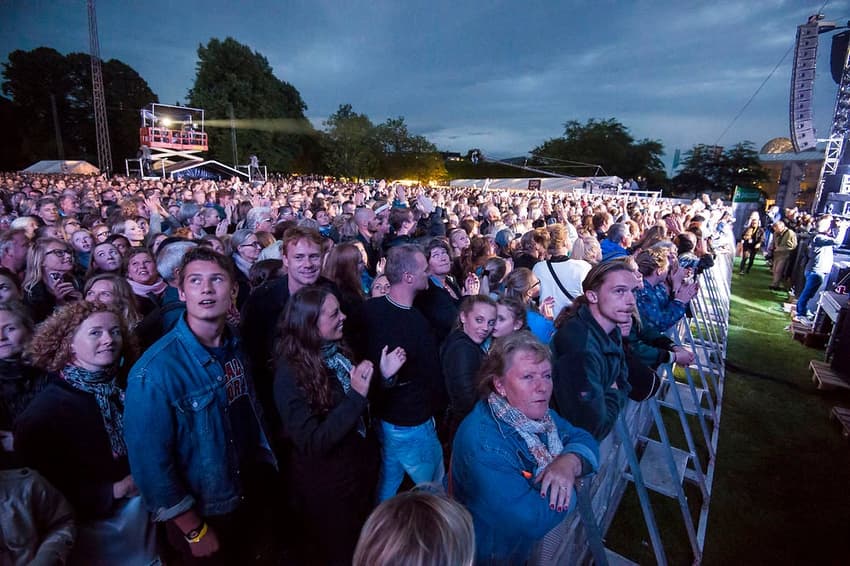Aarhus Festival cancelled due to coronavirus outbreak

Aarhus Festival (Aarhus Festuge), one of the longest-running summer events on the city’s calendar, has been cancelled following a sharp spike in Covid-19 cases.
The city’s lord mayor, Jacob Bundsgaard had previously said the event at the end of August would go ahead.
That came after a serious increase in new cases of coronavirus in the city. 364 were registered in the week prior to Wednesday.
Measures including mandatory face masks on public transport, working from home where possible and restrictions on hospital and care home visits were introduced in response.
READ ALSO: Aarhus coronavirus outbreak: here's what you need to know
Despite this, Bundsgaard previously said that the Festival, scheduled to begin on August 28th, would still go ahead.
That decision has now been reversed.
“We have been given a clear recommendation to cancel, and we will naturally comply with that,” Bundsgaard said.
The city mayor is also chair of the festival’s organising committee.
“This is the right decision in the current situation, with the epidemic still reigning over the city,” he said.
An extraordinary Aarhus Festuge board meeting was called on Monday, at which organisers discussed the situation.
“Given the clear recommendation from health authorities, the decision has been made now, rather than waiting until a planned board meeting on Friday,” Bundsgaard said.
Comments
See Also
The city’s lord mayor, Jacob Bundsgaard had previously said the event at the end of August would go ahead.
That came after a serious increase in new cases of coronavirus in the city. 364 were registered in the week prior to Wednesday.
Measures including mandatory face masks on public transport, working from home where possible and restrictions on hospital and care home visits were introduced in response.
READ ALSO: Aarhus coronavirus outbreak: here's what you need to know
Despite this, Bundsgaard previously said that the Festival, scheduled to begin on August 28th, would still go ahead.
That decision has now been reversed.
“We have been given a clear recommendation to cancel, and we will naturally comply with that,” Bundsgaard said.
The city mayor is also chair of the festival’s organising committee.
“This is the right decision in the current situation, with the epidemic still reigning over the city,” he said.
An extraordinary Aarhus Festuge board meeting was called on Monday, at which organisers discussed the situation.
“Given the clear recommendation from health authorities, the decision has been made now, rather than waiting until a planned board meeting on Friday,” Bundsgaard said.
Join the conversation in our comments section below. Share your own views and experience and if you have a question or suggestion for our journalists then email us at [email protected].
Please keep comments civil, constructive and on topic – and make sure to read our terms of use before getting involved.
Please log in here to leave a comment.